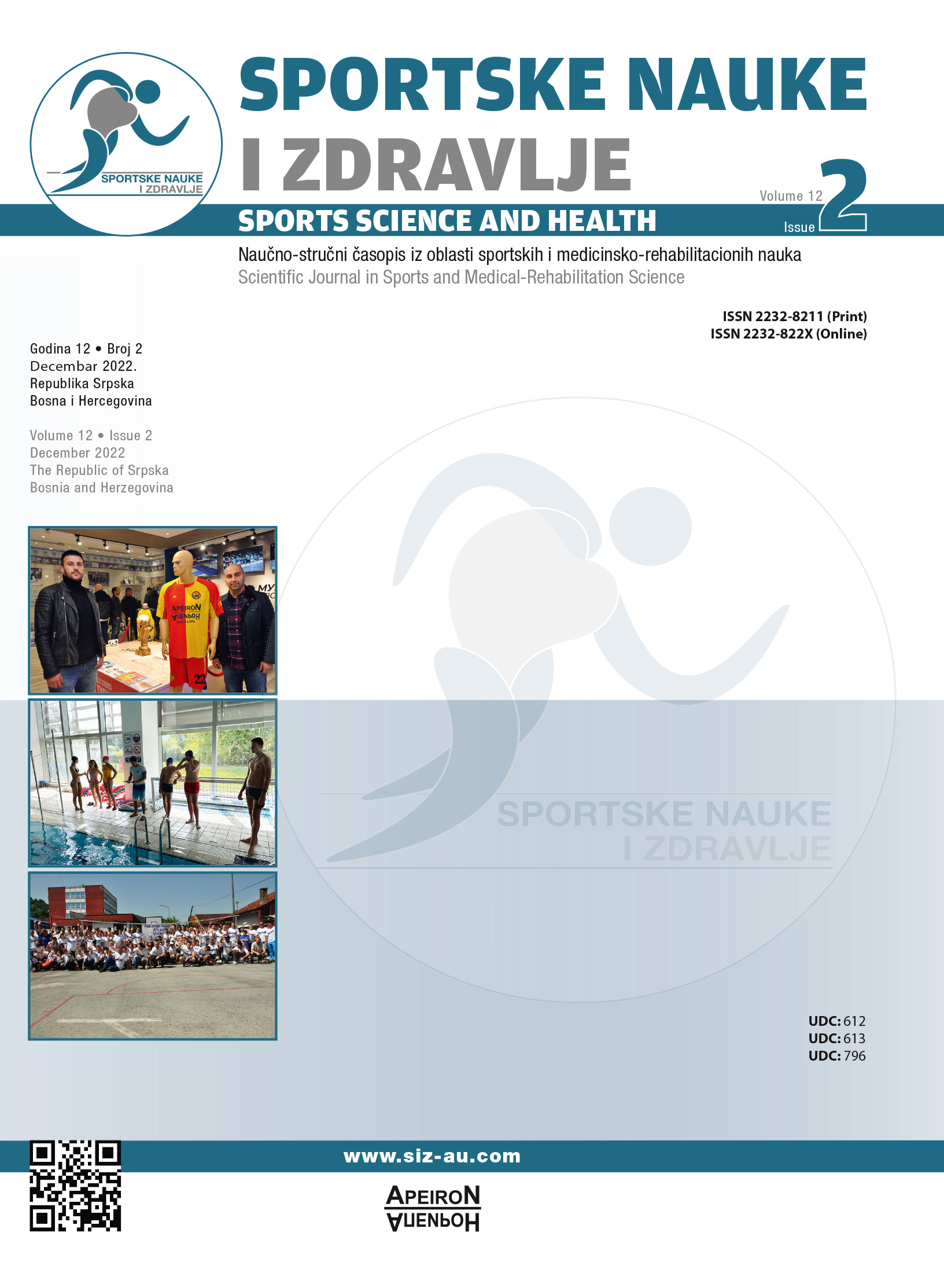The Role of Parents in Encouraging Children to Extracurricular Kinesiological Activities
DOI:
https://doi.org/10.7251/SSH2202159SAbstract
Extracurricular kinesiological activities, in addition to providing the opportunity for actively spend leisure time, significantly contribute to the improvement of children’s health and the development of their abilities, knowledge and achievements, so it is desirable to encourage and direct them. The aim of the study was to assess parents’ attitudes about physical activity and about encouraging children to extracurricular kinesiological activities in their leisure time. Also the aim was to determine the differences in parental attitudes about encouraging activities with respect to the child’s involvement in organized extracurricular kinesiological activities. The research was conducted on a sample of 191 parents of third and fourth grade primary school students. An anonymous questionnaire assessed parents’ attitudes about physical activity and about encouraging children to extracurricular kinesiological activities. Frequencies of answers were calculated, and the significance of the differences was determined by Man-Whitney U test. 79,58% of children were involved in organized extracurricular kinesiological activities, while 20,42% weren’t. Man-Whitney U test indicates the existence of statistically significant differences in parental attitudes related to activity encouragement. Parents whose children attend organized extracurricular kinesiology activities are more likely to encourage children to engage in physical activity. In directing children to extracurricular kinesiological activity and encouraging an active lifestyle, the role of parents will be significant only if parents have positive attitudes about physical activity.
